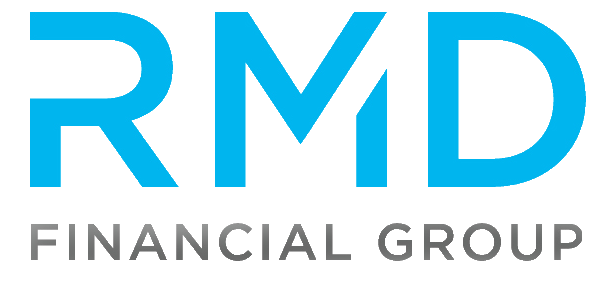News
Crisis Preparation: 3 Things for Safeguarding Your Financial Future
Safeguarding your financial future is important.
Safeguarding your financial future is important. No one likes to think about the impact of their death on their loved ones. But the reality is, not having certain elements in place can turn a tragic situation into a financial crisis. Having these safeguards in place can help provide your family with the financial security they need should the unexpected happen.
Reflect, Reset, Rebalance Your Life
Not everyone experiences a life-changing event in their lifetime, one that impacts them for better or worse. As we continue to experience the pandemic, we are witnesses to our own experiences. We don’t know the outcome will be for ourselves, our neighbors, community, and so on. It can be an unnerving, but positive experience if it is a life-changing event that changes us for the better. As you reflect on the pandemic in the next weeks and months, consider your life as it is today and the changes that you intend to make to rebalance your life.
Coronavirus and The Markets: What You Need to Know
With coronavirus (COVID-19) all around us, investors may be wondering how their investments will fare as this ‘global pandemic’ spreads. Is COVID-19 capable of moving markets? We know it is and came at a time when the economy was already stressing. Earlier market movements starting in February 2020 were the result of unassociated economic factors and the public’s reaction to fear. Now, while the U.S. economy is being impacted, investor’s resilience to react will be tested. The ‘markets’ hate uncertainty. How much and how long COVID-19 will affect economies is to be determined. Let’s take a look at Coronavirus and the markets.
HENRYs (High Earners Not Rich Yet) with Limited Wealth-Building Potential- Are You One of Them?
The term HENRY (High Earners Not Rich Yet) refers to individuals who have the potential to become wealthy in the future because of their income. These individuals or families earn between $250,000 and $500,000 per year and are between 25 and 45 years of age (Gen Z, Millennials, and Gen X). Despite their income, after paying their living costs, taxes, and other expenditures, HENRYs have little left over to save and invest for their retirement. HENRYs are a demographic that politicians consider being ‘rich,’ referring to them as the wealthiest Americans during the 2008 elections. However, there’s more to the HENRY story.
Financial Planning and Living Globally
The past 100 years have seen changes in how people plan for their financial futures and how they live. Borders no longer restrict people from living in one country; their profession often takes them to parts of the world they never anticipated. Today, it’s not uncommon for a family to live part-time in one country or become citizens of another country to work or have a business there. Living globally is a lifestyle that many high net worth families, and others, are choosing. Financial planning and living globally what are the risks?
Green Lending in the United States: Benefits for Sustainability and Debtors
A growing trend in global debt markets, Green Lending, continues to grow among American debt investors. Green Lending ties sustainability initiatives into loan products designed to entice and reward debtors who meet sustainability goals. The debtor’s sustainability goals are performance-based and include such things as lowering electricity and water usage, reducing landfill garbage, increasing recyclable raw materials in production, and initiatives to reduce their carbon emissions. Meeting these performance goals rewards the debtor with a reduction in the spread of their loan’s interest.
Climate Change and Finance: Are They Connected?
Over the past ten thousand years, the Earth’s climate has remained stable. Today, we know through science and research that climate change is happening. Many scientific organizations are studying the impact of climate change. While simultaneously economists are examining the socioeconomic implications in various regions of the world. Climate change is undoubtedly impacting finance and the economy in many areas. How much it will continue to reshape the global economy is unknown, but the financial sector is already shifting capital towards tackling climate change in many parts of the world.
A Debt Reduction Plan for 2020
Being debt-free is possible for everyone, regardless of income. Learning to manage our debt and spending habits and then focus on saving can be life-changing and positively affect your net worth. Net worth calculates by subtracting your liabilities (debt owed) from your assets (not financed). Net worth is calculated for both individuals and companies and is an accurate determination of how much someone, or something, is worth. In this article, we discuss how you can create a debt reduction plan for 2020.
Countdown to Tax Season
With 2020 barely started, preparation for tax season is underway for many investors. Now in the second year of filing taxes under the Tax Cuts and Jobs Act of 2017 (TCJA), focusing your attention on deductions, you can use versus those that were eliminated will necessitate that you plan. The idea of TCJA was to increase the number of Americans who choose the standard deduction rather than itemizing. Here are a few standardized 2019 deductions you don’t want to miss:
Drawing Social Security Early and Still Working? The Social Security Earnings Test is Crucial.
Many people decide to ‘semi-retire’ early and start taking their Social Security Retirement benefit at the earliest age possible. It’s appealing to be able to work part-time or where you have an interest. You may start a small business while making an income and receive Social Security retirement benefits. While early retirement and a part-time job may be of interest to you, it can affect your Social Security Retirement benefits if you aren’t full retirement age. Take the social security earnings test to learn more about your social security benefits.










